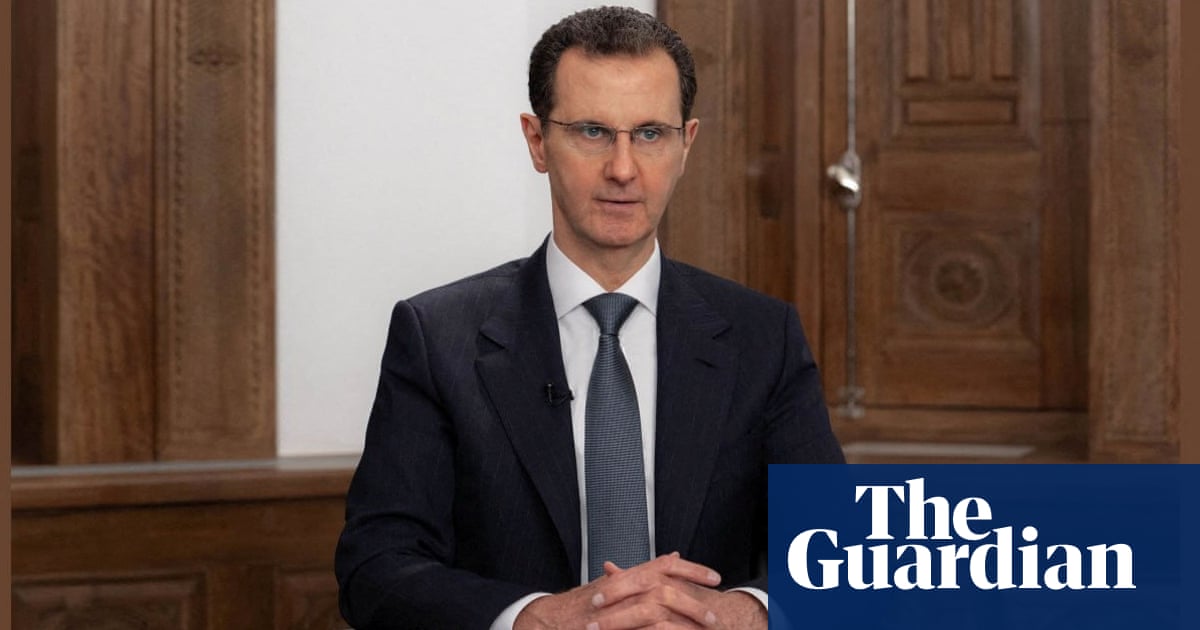
If the current, abnormal weather patterns around the world are clear warning signs of environmental catastrophe, we have tipped over the edge in Dawn King’s near-future dystopia. The roiling planet is in total crisis, with extreme heat, and air so polluted that windows need to remain shut and masks need to be worn. Reports of the outside world, beyond the stark single room on stage, speak of dead bodies, as well as reflectors on clouds in a desperate bid to lower the temperature.
A jury of children will decide the fate of the “dinosaur” generation that depleted the world’s resources and ruined the climate, so the court can punish those who created the greatest carbon footprints. The audience is reminded not to reveal spoilers at the end of the production, so suffice to say that it combines the spirit of Margaret Atwood’s speculative fictions with shades of Lord of the Flies.
This courtroom drama has a compelling conceit, though it ends up slightly repetitive, and perhaps doesn’t fully develop its dystopian horror until the third and final defendant gives her testimony. But it holds us in its grip intellectually, and there is a complex interplay of arguments between the jurors, who grapple with ethical dilemmas and ideological positions involving justice, revenge and the possibility of forgiveness.
As a Donmar Local production, giving a platform to future talent, over half the company are making their professional debuts, though there is a range of experience among the 12 young actors – who include William Gao and Joe Locke, both from the Netflix series Heartstopper. Under Natalie Abrahami’s direction they all bring immense spirit, with a particularly controlled performance from Honor Kneafsey as the head juror, while Francis Dourado is strong as an often lone defender of those on trial. Taya Tower has a good, nervy presence while Charlie Reid is convincingly annoying in his part as a stroppy teen.
The play is at its strongest in its reflections on individual responsibility. Defendants variously blame capitalism, their work or busy family lives, and there are almost comically ludicrous attempts to justify skiing trips and second cars by offsetting them with veg boxes and occasional awareness-raising marches.
The drama within the jury, from power battles and romances to what emerges as a selfish motive to find the defendants guilty, does not always carry us emotionally. Jai Morjaria’s lighting, Xana’s sound design and Nina Dunn’s video designs raise the jeopardy and dread instead. Dramatically, it is the testimonies of the defendants (played by Lucy Cohu, Nigel Lindsay and Sharon Small) that bring the greatest tension.
Ultimately this is a play that demands self-reflection and soul-searching beyond the auditorium. It leaves us thinking about how we live, what we are doing for the welfare of the globe, and whether these angry desolate children of the near future would find us guilty of climate crimes.












